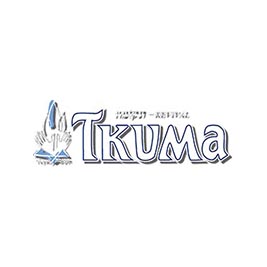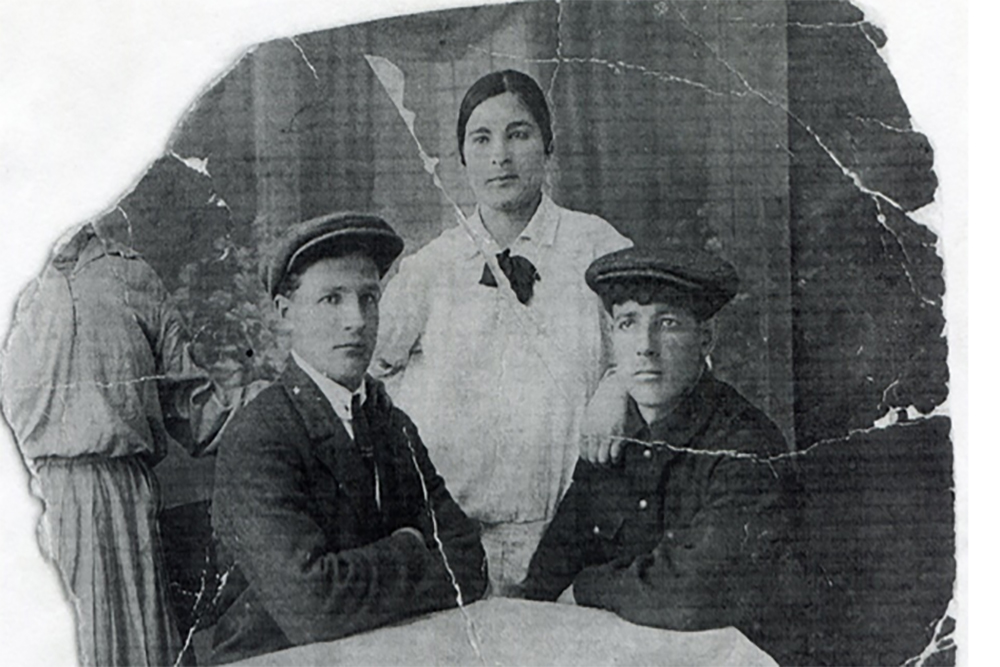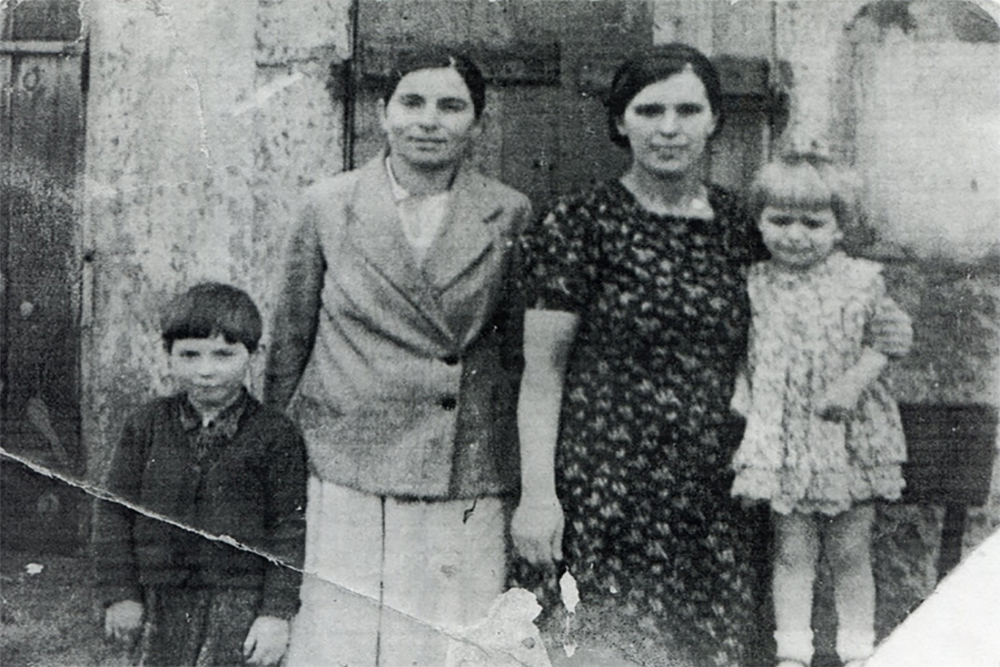Bank of Portraits / Ponomarenko Pavlo and Motria

Ponomarenko Pavlo and Motria
Before the war the married couple of Vasyl and Nekhama (maiden name Tkach) Saveliev lived in Dnipropetrovsk (current city of Dnipro) on the 17, Pushkin Avenue. They had the daughters Lidia (born in 1936) and Liubov (born in 1941). The father was a locksmith.
In June 1941 Vasyl was recruited to the Red Army. His wife and children went to the village in the Solone district, Dnipropetrovsk region, where Vasyl’s family lived. They hoped to survive the war there. However, people started to talk that the woman was a Jew, so Nekhama Savelieva and her youngest daughter returned to the city. The family sheltered the eldest daughter at the houses of their acquainted people.
Vasyl Saveliev was captured not far from Odesa in August 1941. Fortunately, he managed to escape.
“When I came back to Dnipropetrovsk, I heard the terrible news that the Fascists shot my wife and the youngest baby only because they were the Jews. When they came to the flat in mid-October, there was raid; together with the other Jews they were gathered in the city and then shot in the ravine near the transport institute”. From the memories of Vasyl Saveliev
Father took Lida from his relatives’ house and sheltered in Dnipropetrovsk, in the family of Pavlo and Motria Ponomarenko. They lived on the city outskirts (5, Tokarna str.) at the private house. They had two daughters: Valentyna (born in 1931) and Halyna (born in 1935).

Before the war Vasyl Saveliev and Pavlo Ponomarenko worked at the flour mill. Their families were friends. Pavlo was not mobilized because he had to be evacuated together with the mill. However, he did not have time and stayed in the occupied territory. So, Vasyl asked Pavlo and Motria to shelter his daughter for some time. They agreed. Eventually, the girl stayed with them for the whole period of occupation, because soon (in September 1943) her father was deported to Germany as a slave worker.
“I lived like a daughter in the Ponomarenko family. I called Pavlo M. my father and Motria I. my mother. I was registered in their documents and had the last name Ponomarenko. They were familiar with my mom and Motria I. looked like her. In that time I did not know Motria I. was not my native mother. They were very merciful and called me “our daughter” like their native daughters Valentyna and Halyna. We lived poorly. Even girls worked: in the summer of 1942 they sold cold water at the market. In 1943, before the Red Army recaptured the city, the Nazis tried to deport all of us from it. People were forced to pass the gallows with the bodies of the executed people. They beat with whips everyone who did not want to look”. From the memories of Lidia Savelieva
During the bombing, Pavlo Ponomarenko was wounded. His wife Motria with three children managed to escape to the corn field. Then they came to Shyroke village in the Solone district. Pavlo walked on crutches. When his family returned home, they took him to the hospital on Kanatna street, where he died on November 9, 1943. The loss of father became the great tragedy for the family. The life got much worse.
“Motria I. was proposed to take us, the three children, to the orphanage, but she refused. They proposed to take only me there - she refused again and said she would not take any of her daughters to the orphanage. Then she worked at the army unit on Chicherin street. In addition to salary, every day she received the pot of food for us, the kids. So, I lived at the Ponomarenko house until April 1944. I’m so thankful for their bravery, warm and caress”. From the memories of Lidia Savelieva
Lidia stayed at the Ponomarenko house until spring 1944, when her mother’s parents returned from evacuation - Tsylia Tkach and Ziama Trapper. The girl lived with them until the end of 1954, when the grandmother died. Then she lived with her father and stepmother.
After return from Germany, Vasyl Saveliev came to Rostov-on-Don. In 1950 he came back to Dnipropetrovsk and worked at the Pivdennyi Machine-Building Plant. Lidia often asked him to tell about circumstances of her rescue.
“My father always avoided conversation when I asked him to tell about mother, sister and those who saved me from death. When I told him I remembered mother Motria, he always said that I already had mother (stepmother) and I did not need mother Motria. Only when he was 90 years old, in March 2000, and stepmother died, he began to tell about those times a little bit”. From the memories of Lidia Savelieva
“I am extremely grateful to the Ponomarenko family that they were risking their lives and their children while saving my child from the Fascists, - Vasyl Saveliev said late in life. - I apologize to my daughter Lidia for not telling her about the tragedy of our family. Now it’s my duty to tell Lidia the truth about the tragedy of her mother, sister and about people who saved her from the Fascists. That is why I certify this testimony”.
Pavlo and Motria Ponomarenko were honored the Righteous Among the Nations in 2001.

Ukrainian Insitute for Holocaust studies
Dnipro
-
fingerprintArtefacts
-
theatersVideo
-
subjectLibrary



